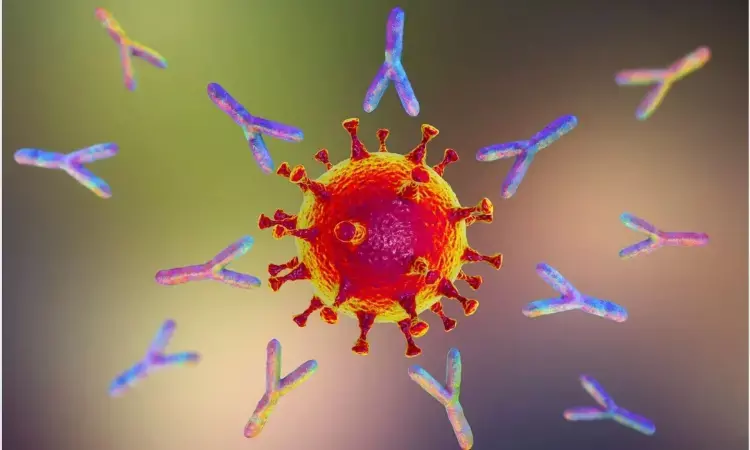- Home
- Medical news & Guidelines
- Anesthesiology
- Cardiology and CTVS
- Critical Care
- Dentistry
- Dermatology
- Diabetes and Endocrinology
- ENT
- Gastroenterology
- Medicine
- Nephrology
- Neurology
- Obstretics-Gynaecology
- Oncology
- Ophthalmology
- Orthopaedics
- Pediatrics-Neonatology
- Psychiatry
- Pulmonology
- Radiology
- Surgery
- Urology
- Laboratory Medicine
- Diet
- Nursing
- Paramedical
- Physiotherapy
- Health news
- Fact Check
- Bone Health Fact Check
- Brain Health Fact Check
- Cancer Related Fact Check
- Child Care Fact Check
- Dental and oral health fact check
- Diabetes and metabolic health fact check
- Diet and Nutrition Fact Check
- Eye and ENT Care Fact Check
- Fitness fact check
- Gut health fact check
- Heart health fact check
- Kidney health fact check
- Medical education fact check
- Men's health fact check
- Respiratory fact check
- Skin and hair care fact check
- Vaccine and Immunization fact check
- Women's health fact check
- AYUSH
- State News
- Andaman and Nicobar Islands
- Andhra Pradesh
- Arunachal Pradesh
- Assam
- Bihar
- Chandigarh
- Chattisgarh
- Dadra and Nagar Haveli
- Daman and Diu
- Delhi
- Goa
- Gujarat
- Haryana
- Himachal Pradesh
- Jammu & Kashmir
- Jharkhand
- Karnataka
- Kerala
- Ladakh
- Lakshadweep
- Madhya Pradesh
- Maharashtra
- Manipur
- Meghalaya
- Mizoram
- Nagaland
- Odisha
- Puducherry
- Punjab
- Rajasthan
- Sikkim
- Tamil Nadu
- Telangana
- Tripura
- Uttar Pradesh
- Uttrakhand
- West Bengal
- Medical Education
- Industry
Male COVID-19 patients have higher incidence of complications of lower urinary tract infection

Hong Kong: A largest study demonstrating the detrimental urological effects of SARS-CoV-2 infection has shown an association between SARS-CoV-2 infection and an increased incidence of haematuria, urinary retention, UTI, and the addition of combination therapy in the short-term irrespective of COVID-19 severity.
The study, published in the Journal of Internal Medicine suggests that SARS-CoV-2 infection may worsen lower urinary tract symptoms (LUTS) in men.
The study included 17,986 men receiving medication for LUTS within the public healthcare system of Hong Kong in 2021–2022, half of whom had SARS-CoV-2 infection. The group with SARS-CoV-2 had significantly higher rates of retention of urine (4.55% versus 0.86%); blood in the urine (1.36% versus 0.41%); clinical urinary tract infection (4.31% versus 1.49%); bacteria in the urine (9.02% versus 1.97%); and addition of 5-alpha reductase inhibitors, which are drugs prescribed for enlarged prostate. (0.50% versus 0.02%). These urological manifestations occurred regardless of COVID-19 severity.
Key findings include:
- After propensity score matching, 17,986 patients were included for analysis, among which half had PCR-confirmed SARS-CoV-2 infection (n = 8993).
- When compared to controls, the SARS-CoV-2 group demonstrated a statistically significant higher incidence of retention of urine (4.55% vs. 0.86%), haematuria (1.36% vs. 0.41%), culture-proven bacteriuria (9.02% vs. 1.97%), clinical urinary tract infection (UTI) (4.31% vs. 1.49%), and addition of 5ARI (0.50% vs. 0.02%).
- Subgroup analysis demonstrated similar differences across different age groups.
- There are no statistically significance differences in the incidence of retention, haematuria, or addition of 5ARI across different COVID-19 severities.
The findings might relate to the presence of certain proteins targeted by SARS-CoV-2 that are known to be expressed in the prostate.
“We are excited to be the first to report the effects of COVID-19 on complications of benign prostatic hyperplasia-or enlarged prostate-and also demonstrate the alarming extent of its urological effects,” said corresponding author Alex Qinyang Liu, MD, of Prince of Wales Hospital, in Hong Kong.
Reference:
Alex Qinyang Liu, Peter Ka-Fung Chiu, Samuel Chi-Hang Yee, Chi-Fai Ng, Jeremy Yuen-Chun Teoh, SARS-CoV-2 infection correlates with male benign prostatic hyperplasia deterioration, https://doi.org/10.1111/joim.13719.
Dr Kamal Kant Kohli-MBBS, DTCD- a chest specialist with more than 30 years of practice and a flair for writing clinical articles, Dr Kamal Kant Kohli joined Medical Dialogues as a Chief Editor of Medical News. Besides writing articles, as an editor, he proofreads and verifies all the medical content published on Medical Dialogues including those coming from journals, studies,medical conferences,guidelines etc. Email: drkohli@medicaldialogues.in. Contact no. 011-43720751


